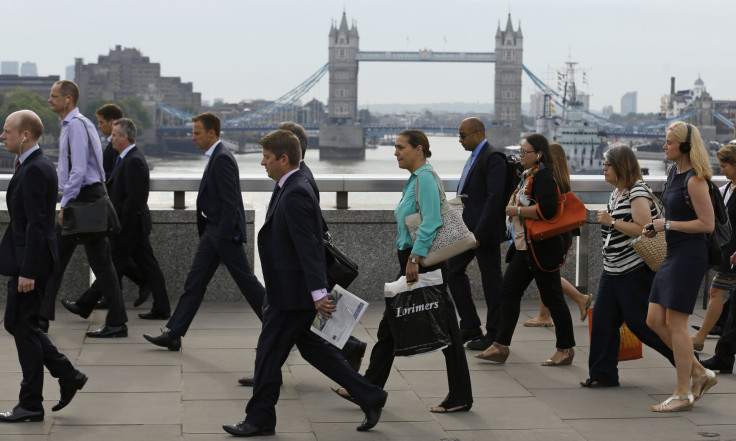UK Unemployment Falls Below Bank Of England Threshold To 5-Year Low

(Reuters) - Britain's unemployment rate fell more sharply than expected in the three months to February and pay growth caught up with inflation for the first time nearly four years.
The unemployment rate fell to a five-year low of 6.9 percent in the three months to February, down from 7.2 percent in the three months to January and below a forecast in a Reuters poll of 7.1 percent.
It was also below the 7 percent level originally set by the Bank of England for considering an increase in interest rates. The Bank has since given fresh guidance about when it might start to tighten monetary conditions.
The Office for National Statistics said total pay growth picked up to 1.7 percent in the three months to February when consumer prices also rose 1.7 percent.
It was the first time since April 2010 that the pay growth rate did not lag the consumer price index, the ONS said.
Economists in the Reuters poll had expected pay to grow by 1.8 percent
In March, the consumer price index slowed to 1.6 percent, data released by ONS on Tuesday showed.
An end to inflation eroding wages will be a boost for the government of Prime Minister David Cameron who has come under fire from the opposition Labour party for what it calls Britain's cost of living crisis.
In the month of February alone, pay growth was 1.9 percent, the ONS said.
The number of people claiming unemployment benefits fell by slightly more than expected, down by 30,400 to 1.142 million in March, its lowest level since November 2008.
The number of claimants in February was revised to 37,000 from a previously reported 34,600.
Britain's labour market staged a much stronger-than-expected recovery in 2013, wrong-footing the Bank of England which said in August it would start to think about raising record low interest rates when unemployment hit 7 percent.
Under new guidance announced in February, the Bank has pointed to how much spare capacity there is in the economy as a way of assessing its plans for tightening borrowing conditions once unemployment hit the 7 percent level.
The number of people in employment rose to a new record of 30.389 million, helped by a steady increase in the number of people who are registered as self-employed.
A separate survey published on Wednesday showed that more than a quarter of people who became self-employed in the last five years would prefer to be employed by someone else.
The survey was conducted by polling firm Ipsos Mori for the Resolution Foundation, a think tank which focus on the living standards of people in Britain on low and middle incomes.
Of the 4.5 million self-employed people in Britain nearly 1.7 million became self-employed since 2009, the think tank said.
© Copyright IBTimes 2024. All rights reserved.











